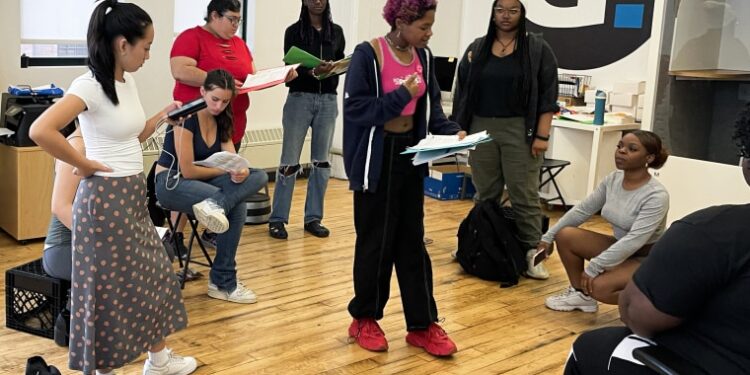The house lights dim as 11 young women take the stage in a theater in New York City. This isn’t a Broadway production, it’s the latest cohort of Girl Be Heard, an arts and leadership- centered organization performing their very own theatrical performance, “Rise: The Pursuit of Utopia.”
The Brooklyn-based organization, which seeks “to advance dialogue about social justice issues, from racism to gender inequity,” teaches skills in activism, performance and communication in afterschool and weekend programs, to help participants amplify their personal stories and work through their own trauma by using art and community healing.
More than 600 young people — girls, young women, and those who are gender expansive — are enrolled in their programming each year, and Girl Be Heard has performed in front of over 15,000 people globally.
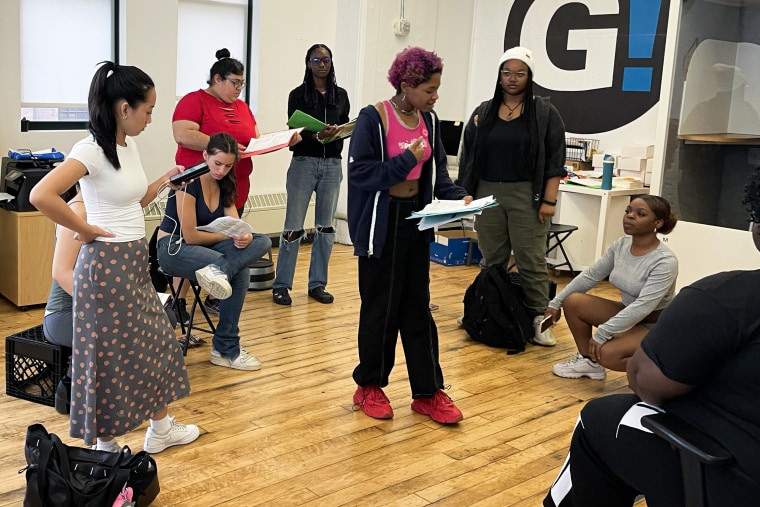
“Rise,” written and produced by the cast, reflects themes of liberation and community healing which Cynthia Renta, the executive director, said is integral to her organization.
“The reality is that the community has a lot to do with the amount of validation, and the amount of support that they could be giving young people to make sure that they are journeying safely through life,” Renta said.
For her, the mission to help improve young people’s confidence and mental health is personal.
“I lost a very close friend to suicide, a beautiful Black woman artist in the community,” she said. “And at the same time that I was organizing her funeral . . . I was actually coming on board to Girl Be Heard. And so in this time, that has also been a time of deep grief for myself and transformation for myself, I have found a clear connection for my work moving forward around mental health.”
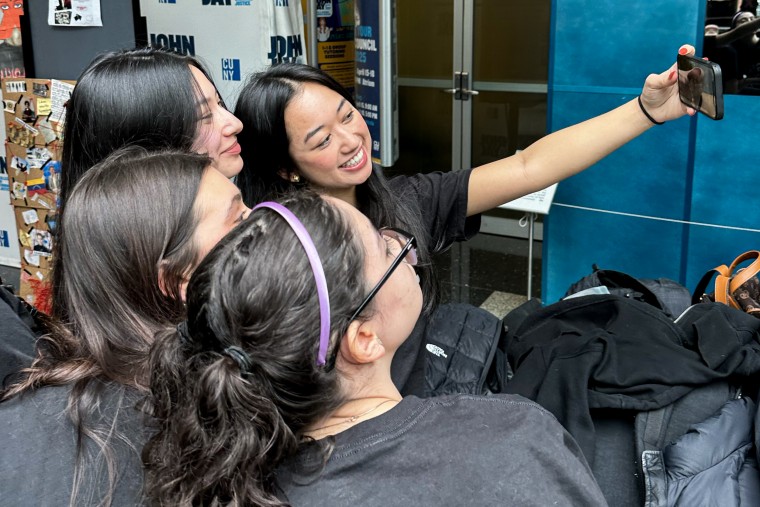
“Girl Be Heard” has helped thousands of young women. Three alumni have gone on to become New York City and National Youth Poet Laureate, and two others have been finalists or runners up.
The organization remains committed to supporting their participants, who come from very different backgrounds.
Anastasia Calixte, 20, is one of those women. Not too long ago, Calixte found herself sitting in the subway with all of her possessions in a suitcase.
“I was in the station with my suitcase, just sitting there like, I don’t know where to go,” Calixte recalled. Calixte said she also struggled with her mental health while growing up.
An estimated 4.2 million youth and young adults experience homelessness in the United States, putting them at an increased risk of mental illness, substance use and abuse.
“I did go through a lot of depression,” Calixte said. “I had lost a lot of my family members and a lot of my friends. So it was very tough to deal with my mind and the thoughts that would come up.”
She said she had to become her own advocate in order to persevere.
“When you don’t have people who really are there for you, who would like, you know, tell you, ‘I’m proud of you, you go, girl!’ You know, I have that now, but I didn’t have that before. I had to be the one in my life to tell me, ‘you got this’ and ‘keep going.’”
Calixte eventually found a youth shelter in midtown Manhattan, where she and Divinity Nix-Sow, 20, learned about Girl Be Heard.
Both women now live independently, and they are paid to perform with the company. Nix-Sow said Girl Be Heard allowed her to discover her talents and voice as a poet.
“No matter how much I’ve been through, or things that have tried to stop me, I never let it,” Nix-Sow said. “I never allowed it because there’s something in my spirit that is called perseverance and that’s something that I know that can’t be taken away from me.”
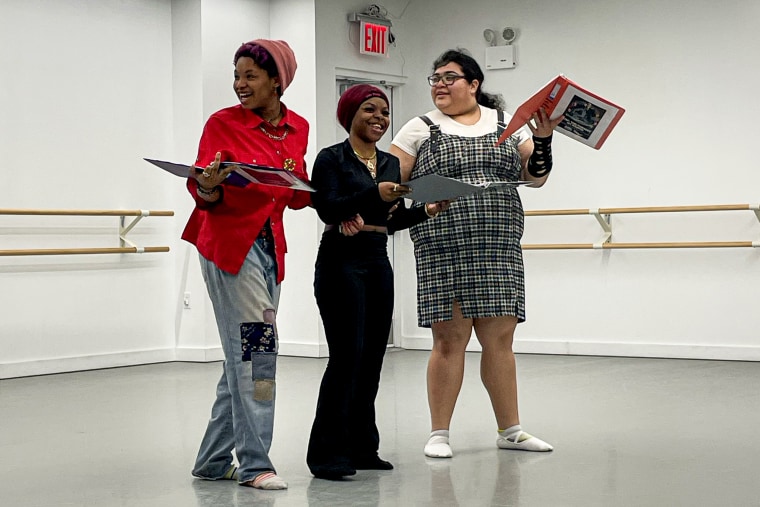
Renta, the executive director, helps curate spaces where young women like Nix-Sow and Calixte can speak about their trauma and issues openly, in a nonjudgemental environment.
“We are finding that young women have things to say that they don’t have space to say them in,” she said. “There are certainly huge, social issues that we’re seeing with young people. And it really starts with, Are we making space for their voice?” Renta said.
“I want to, definitely, emphasize the importance of seeking clinical help, with mental health issues, but also promoting the power of community around, creating spaces of safety and inspiration and healing.”
Renta and the performers said they hope their organization can encourage others to create space for listening, learning and community healing.
“We are in a crisis around connection within our society,” Renta said. “And so the more opportunity that we have for our young people to connect with each other and also see themselves reflected in each other, really, offers, wonderful opportunity for transformation for the future.”
But for Nix-Sow, performing and healing go hand in hand.
“When I feel like I’m onstage,” she said, “my only goal is to touch a heart, no matter if it’s one heart or a billion.”
For more from NBC BLK, sign up for our weekly newsletter.
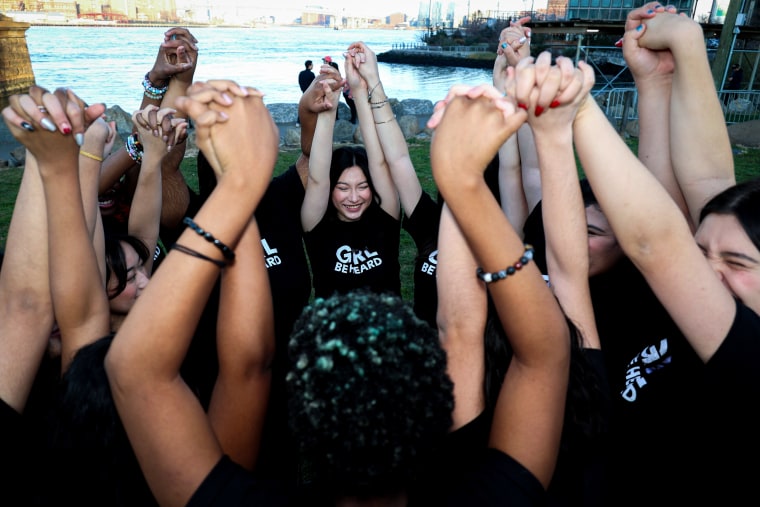
Courtesy Girl Be Heard

